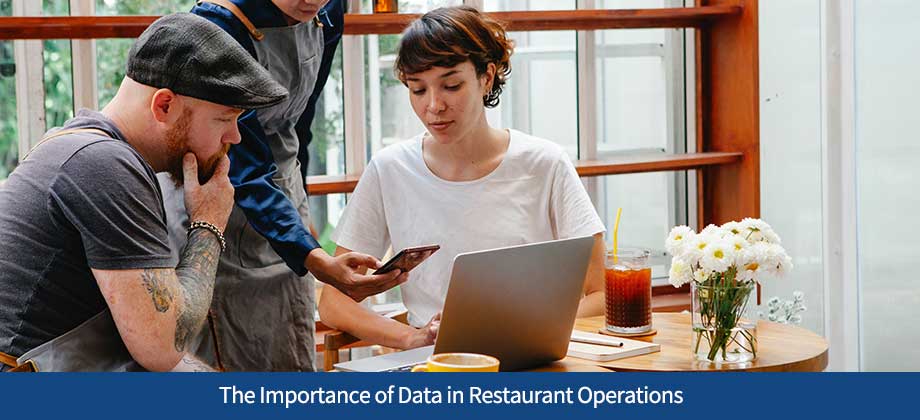The Importance of Data in Restaurant Operations

Data matters—especially when it comes to providing the best possible experience for your restaurant customers. But according to a recent survey from Nation’s Restaurant News, almost half (43 percent) of respondents feel they’re not using the customer data they do have to its fullest potential. How can business owners take the great information they’ve already gathered from POS systems, email campaigns, and social media and optimize it to their advantage? That’s what we’ll tackle today.
Everything must be measured. That’s the best piece of wisdom all successful restaurant operators know. Tracking and measuring data allows you to make informed decisions about your business, with the metrics to back them up. You’re probably collecting customer data at every turn as it is—for instance, when customers place orders, make reservations, or swipe their credit card. But what about other interactions, such as whether they’re a repeat customer? What is their typical food order? What time of day do they usually come by? Your data gathering tools, such as your point of sale (POS) system, should be doing the heavy lifting of building a customer profile so you can better anticipate consumer needs without having to ask these questions point-blank.
Email and SMS data is also key in learning who your customers truly are. With curated email lists comes the addresses you need to create curated social media groups, which can in turn lead to customer loyalty in the form of folks signing up for text messages. Now that you’ve got emails, phone numbers, and transactional/POS data, it’s easier to craft marketing strategies that align with what your customers are asking for.
Post-visit surveys can prove tremendously valuable for those in the restaurant industry because they provide real-time information and feedback on essentially any detail you might want to know more about. The speediness of food delivery, friendliness of staff, cleanliness of the dining room, etc. Surveys are also easy to implement whether your customers are interacting with you digitally or in-person.
Once you’re in great shape with the customer touchpoints and data you’re collecting, it’s important to have it organized in a way that isn’t overwhelming. Sorting data is a tall order and could be something you might consider hiring an agency to help with—unless you’re fortunate enough to have a CTO. Professionals will be able to help you make sense of the data you’ve been able to glean, and then you can take it from there in terms of a strategy.
Data, used in a thoughtful way, can make a tremendous difference in how customers perceive your business. The days of your barista knowing your order every morning might be slipping away, but we can bring some of that personalization back into the restaurant experience by using customer data. We’re nearing the time when technology is able to customize experiences based solely on a license plate number gathered at the drive-thru window. And isn’t that what customers want? A truly tailored restaurant visit, from start to finish?
With decades of experience, ARF Financial is a leading financial services company that aims to get small business owners like you the funding they need to reach their business goals. If you have big projects in sight, chances are you might need some extra cash on hand to make them become a reality. That’s where we come in: Our loan experts have helped tens of thousands of restaurant owners secure over $1 billion in funding over the years. So, what’s the delay? Head to ARF Financial today to learn how we can help you capitalize on your business’ potential with the perfect financing products—built just for you.

